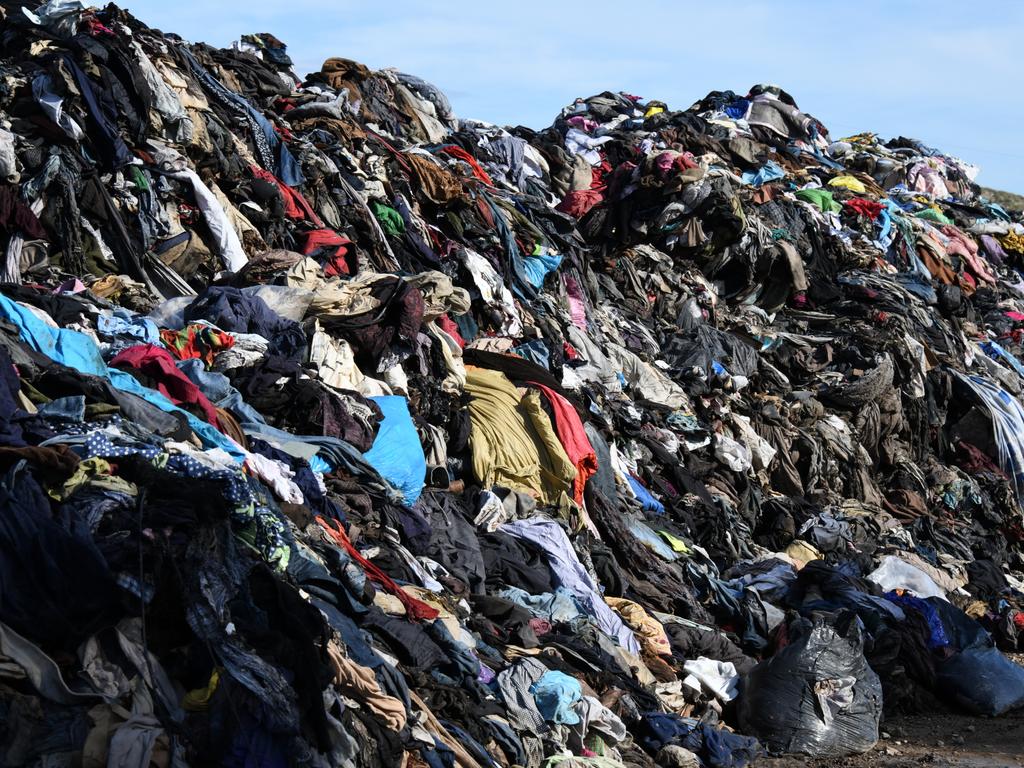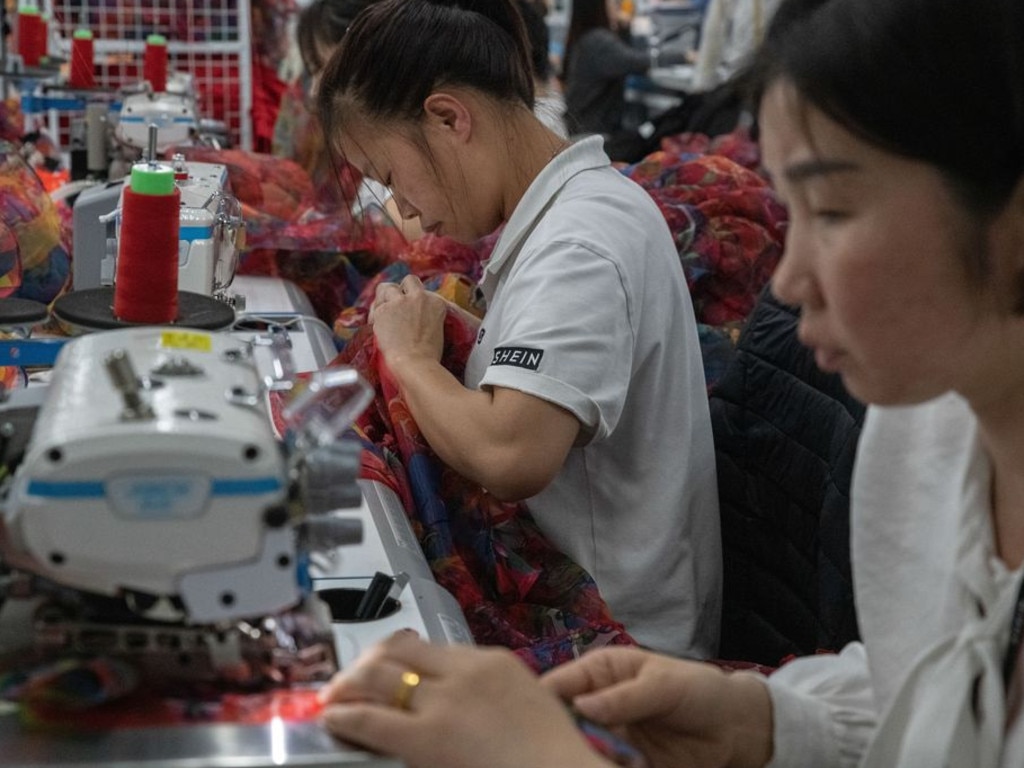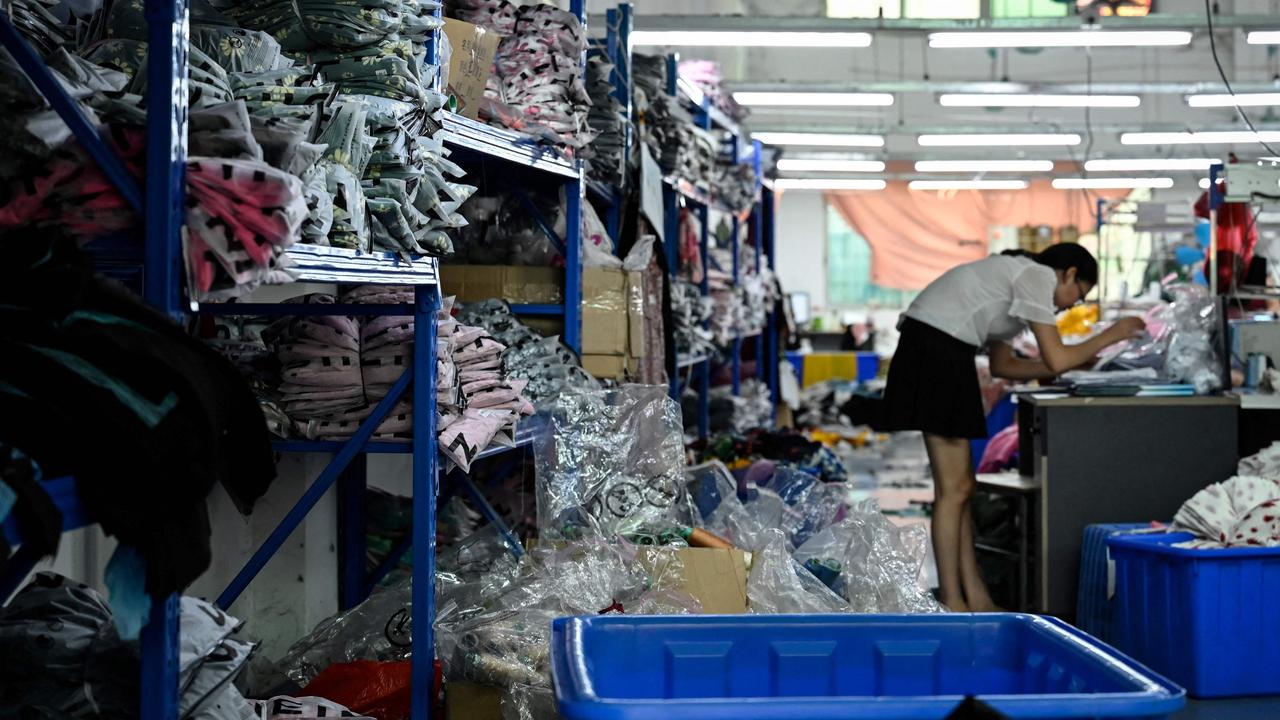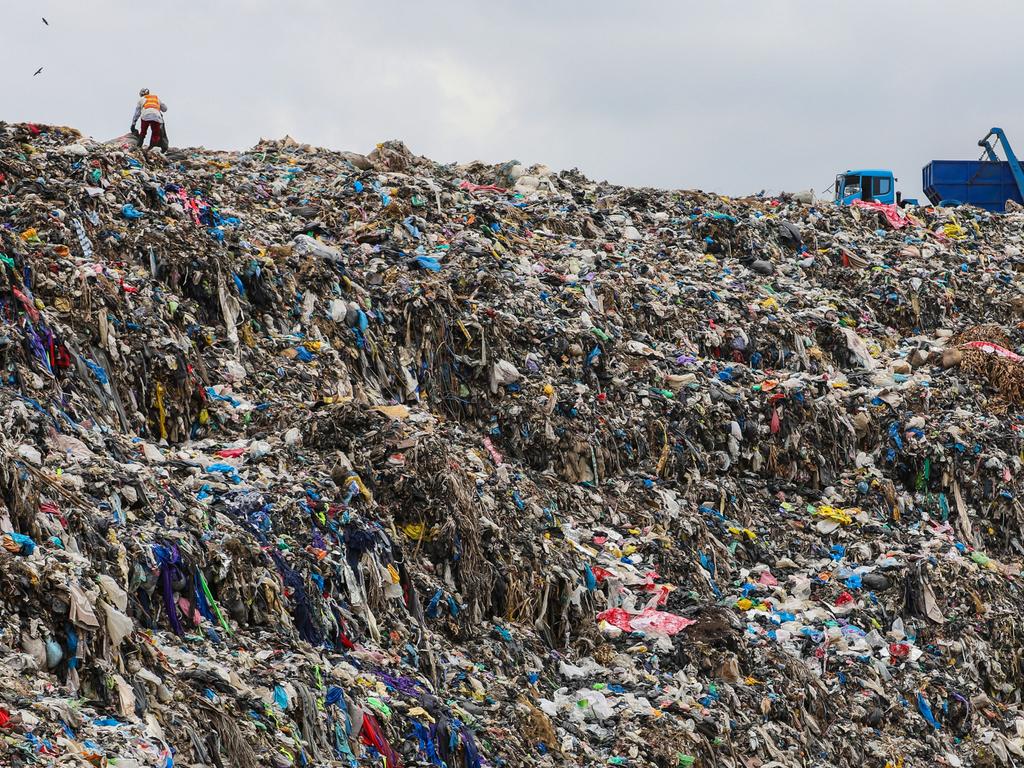Eco hypocrisy? Young Aussies betray sustainable virtues with fast fashion addiction
They’re the most environmentally conscious cohort in history, dubbed ‘Generation Sustainable’, but young Aussies have a very dirty secret.
Fashion
Don't miss out on the headlines from Fashion. Followed categories will be added to My News.
Generation Z is the most eco-conscious and sustainability aware cohort in history, but their rabid consumption habits speak much louder than their words, data reveals.
According to research by the consultancy EY, 58 per cent of Gen Z – those born between 1997 and 2013 – say they want to buy products that are sustainable and ethically sourced.
More than 60 per cent of young Aussie consumers say they’re willing to pay more to buy from brands that have a positive impact on society, including when it comes to the environment, Statistica Research found.
And yet Gen Z shoppers are flocking to Chinese fast fashion platforms like Temu and Shein in droves to get cheap and on-trend clothing in bulk.
Assembling a huge wardrobe with the latest looks that cost tens of dollars rather than hundreds seems at odds with their self-reported care about climate change and sustainability.
What arrives at their homes might not cost them a lot, but experts say the environment, human rights and efforts to reduce waste all pay a hefty price.
Huge cost of fast fashion
The impact on the environment from the fast fashion boom is enormous, with each Australian on average buying 27kg of textiles each year, only to dump 23kg of it into landfill.
RMIT University research also shows Aussies import a staggering amount of clothing – 1.4 billion items a year.


An estimated 200,000 tonnes of clothing winds up in landfill across the country annually.
“But it’s not only landfill,” UniSA PhD candidate Erin Skinner said.
“Globally, the fashion industry produces about 20 per cent of the world’s wastewater. This translates into 2700 litres of water to make one cotton T-shirt – enough water for one person to drink for nearly two and a half years.
“And when it comes to CO2 emissions, the fashion industry produces more emissions than the shipping and aviation industries combined.”

In 2022, Ms Skinner conducted research into the level of awareness Aussies have about the environmental impacts of fashion consumption.
Many were unaware, which could be part of the reason that the country is over-represented as one of the world’s largest consumers of textiles.
“Fast fashion is all about demand-driven clothing, where buyers snap up the newest fashion styles at the height of their popularity, only to discard them after a few wears,” Ms Skinner said.

“Such phenomenal waste is clearly unsustainable, so it’s vital that the sector educates consumers about alternative options.
“This could mean highlighting the value for money that comes with buying fewer, long-lasting garments, boosting the hire-clothing sector, using online influencers to educate, or looking to more accessible and online second-hand items.”
Drivers of the Gen Z contradiction
In analysis for The Conversation, RMIT University marketing lecturers Marian Makkar and Amanda Spry said digital content trends are helping to fuel the Gen Z love affair with fast fashion.
“Social media tactics such as ‘hauls’ and get-ready-with-me videos entice Gen Zs to get stuck on the treadmill of overconsumption,” Dr Makkar and Dr Spry wrote.
“The idea is for content creators to show off massive amounts of new, trendy clothing. This in turn fuels the desire for consumers to continuously buy what they are seeing online – in bulk.”

Over the past two decades, the world’s biggest fast fashion giants, from Zara to H&M, have designed lucrative business models to take the latest and hottest catwalk looks and produce cheap products inspired by them in bulk.
But more recently, new commerce platforms like Shein and Temu have drastically sped up the process, churning out huge quantities of clothing at even lower prices and at a more rapid rate.
For young buyers, owning “seven trending items over two high-quality outfits” is much more appealing, Dr Makkar and Dr Spry said.
And popular online trends and phrases pushed by influencers, from “dupes” or duplicates to “reps” or replicas, make buying fast fashion a big temptation to resist, they added.
The cost of living crisis doesn’t help.
Research earlier this year by financial comparison website finder.com.au found 77 per cent of Gen Z is grappling with money problems.


“Being bombarded with persuasive tactics from brands and influencers, the ease of access to new items at the click of a button, and the allure of affordable pricing amid a cost-of-living crisis makes it very difficult for even the most committed Gen Z consumer to buy ethically.
“The biggest demographic to pull back on spending due to economic stress are 18 to 26-year-olds.
“Young people typically earn the lowest wages and enjoy less job security. These financial constraints are challenging to Gen Zs seeking to consume more sustainably. Fast fashion becomes a cheap option for them to stay trendy without breaking the bank.”
Are they hypocrites? It’s complicated
On the face of it, the contradiction of the “sustainability generation” contributing to a huge environmental issue in a big way seems very hypocritical.
“Gen Z are Shein shoppers, haul lovers, micro-trend followers, and repeat outfit shamers,” Dr Makkar and Dr Spry said.
“This stands starkly against their eco-conscious values.
“While this seems hypocritical, it is what is referred to as the attitude–behaviour gap – the incongruence between what people say and what they actually do. This is a phenomenon noted across multiple generations.”
Research suggests they might simply be a bit clueless about the real cost of their cheap clothing.
The annual Ipsos Climate Change Report in 2023 found Aussies see industries like fashion as being the least likely to have an impact on climate change.
And it’s not as though those surveyed are apathetic about environmental issues.

Last year, 67 per cent of Aussies said climate change poses a serious threat to our way of live over the next 25 years.
Back in 2010, just 10 per cent of those surveyed felt that way.
Dr Makkar and Dr Spry said the very drivers of interest in fast fashion could evolve to help raise awareness of its impact.
“It is time to re-engage with social media content creators in different ways that educate consumers, promote responsible behaviour and advocate for changed regulations and business practices.
“This might include tried-and-true tactics such as influencer endorsements and haul videos that are refocused on more sustainable options – like online second-hand retailers.”
In recent months, some counter trends have emerged that the pair describe as “promising”.
One is ‘underconsumption core’, a TikTok trend that promotes minimalism and being frugal, and ‘de-influencing’, pushing back on popular content creators who shill for brands.
Originally published as Eco hypocrisy? Young Aussies betray sustainable virtues with fast fashion addiction









